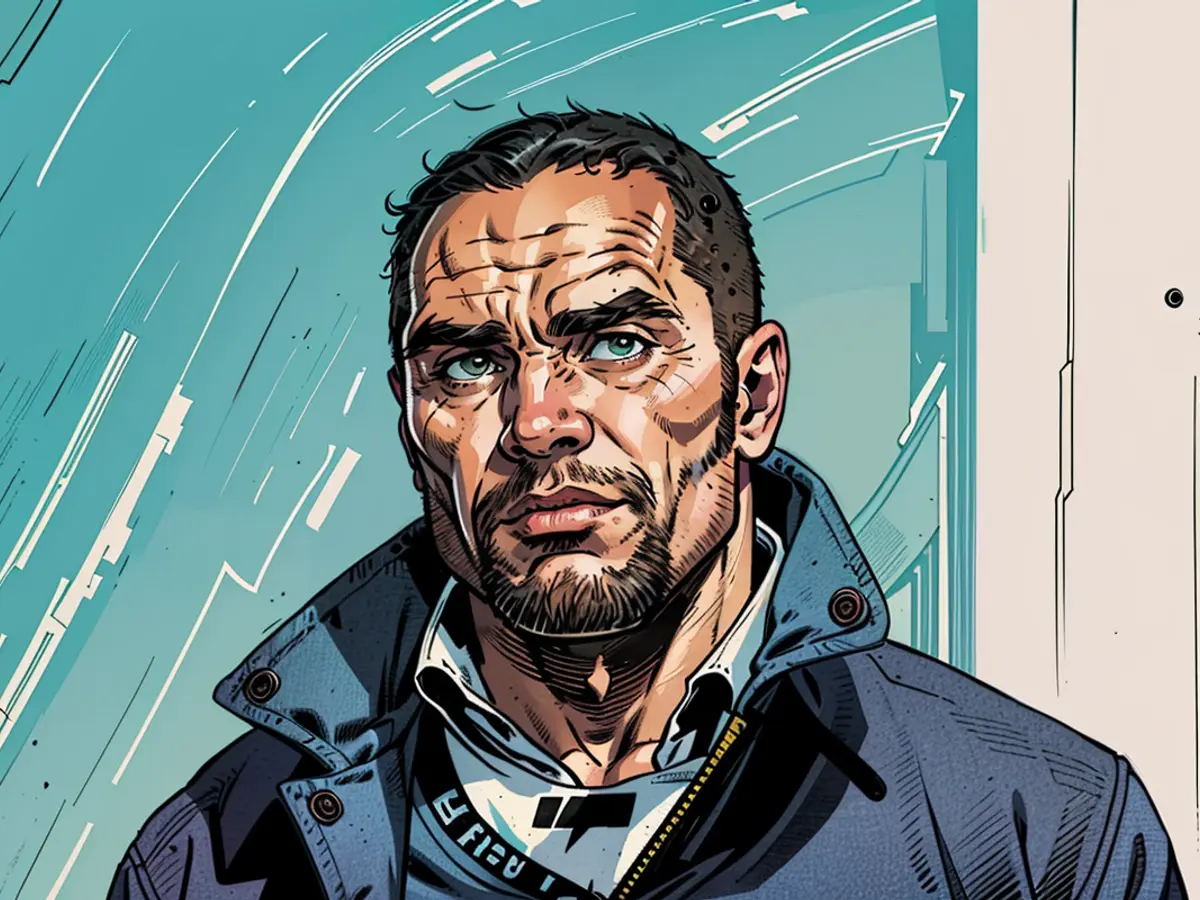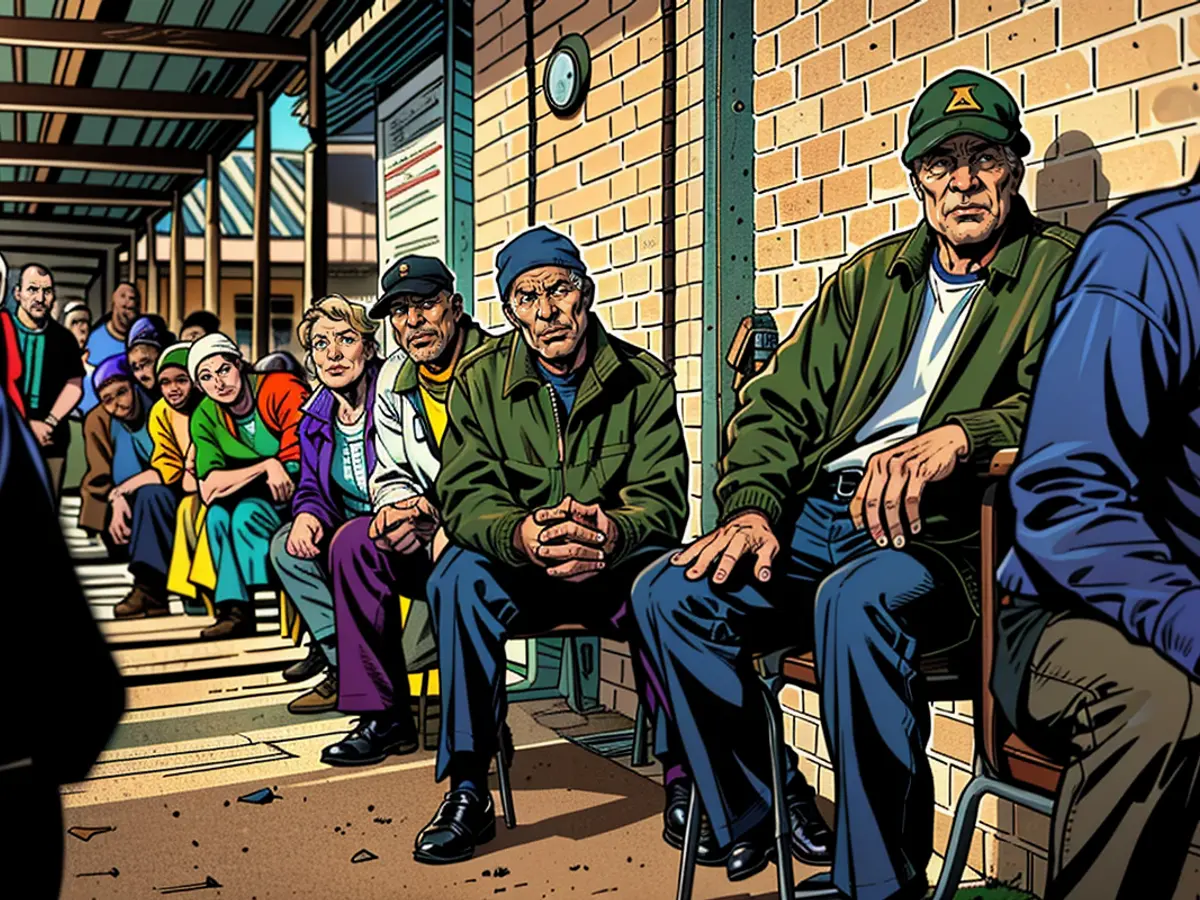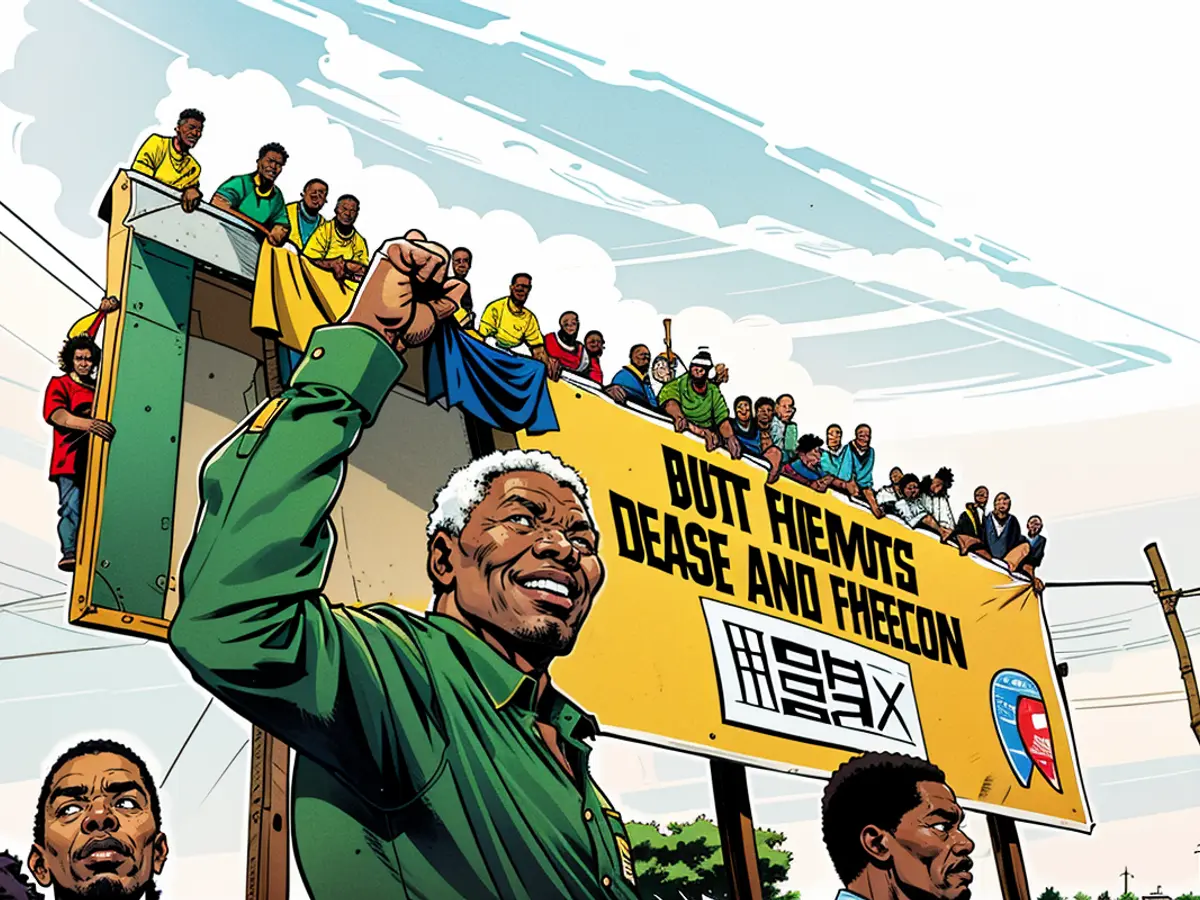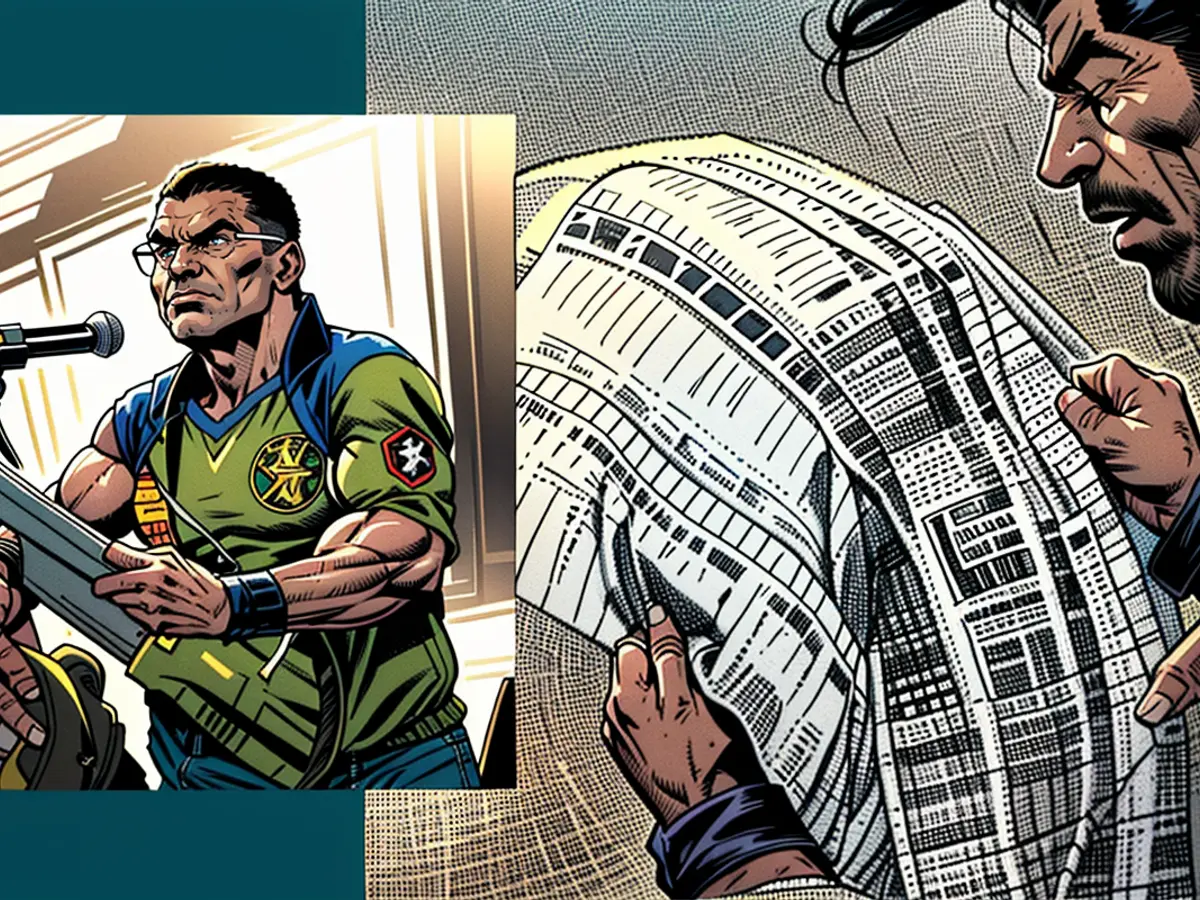
Opinion: The other former president who used Trump’s playbook – and lost
The conference participants were mostly local academics in our early to mid-50s; all of us had voted for the first time in our 20s in 1994, the year of South Africa’s first free election.
2024: THE VIEW FROM AFAR
- Each month leading up to the US election, a CNN Opinion writer in a different country explores how locals view America and why the choice of the next president matters to them.
- Read also:
- The view from Taiwan
- The view from Germany
Riding the shuttle from the airport, we saw very few campaign posters on the streets; still, the upcoming elections were on everyone’s mind. Most of us rightly assumed the African National Congress (ANC) – the party of Nelson Mandela – would lose its majority after 30 years and be forced to govern via a coalition.
But the figure of former President Jacob Zuma and his new political party uMkhonto – or simply “MK” – provoked more reaction.
The group discussed him – and his Zulu-nationalist-flavored populism – with a mix of dark humor and trepidation.
After the conference, I met up with a close friend, Herman Wasserman. We started our journalism careers together in the early 1990s, and later, both went into academia. These days, Herman is a professor of journalism at Stellenbosch University, where he researches disinformation.
We discussed the upcoming elections and the parallels between Zuma and Donald Trump’s attempted comeback as president of the United States, where I have lived with my family for the past two decades.
We now have two former presidents with questionable ethics, legal troubles and significant evidence of misogyny, their children thrust into the spotlight to defend and work for them, casting doubts on the electoral system and slippery principles, running on personalistic populism with a base that includes people unafraid to engage in political violence.

Moreover, according to Herman, pro-Zuma conspiracy theories and propaganda, some with Russian fingerprints, had been flooding South African social media in the lead-up to the election.
Still, despite the parallels, there are key differences that tell a bigger story of how these countries perceive democracy. And even as Zuma takes pages from Trump’s playbook, South Africans may be telling a different narrative.
Zuma’s rise, fall and comeback. Sound familiar?
Zuma was renowned for his resistance against apartheid. He was arrested at 17, sent to Robben Island – where Mandela was also imprisoned – for 10years, then spent a long time as an ANC operative, mostly in exile.
Rising (and falling and rising again) in the ANC, he became president in 2009, but his tenure was marred by economic decline and further corruption scandals (what South Africans call “state capture”).
Facing pressure, Zuma resigned as South African president in 2018. Three years later, he was convicted of contempt of court for defying a commission investigating corruption and served a brief stint in jail.
His imprisonment triggered violent protests by his supporters. Zuma was released on medical parole after two months, marking the end of a tumultuous era in South African politics.
Since then, miraculously, he has recovered enough to start a political party. (Though he himself is barred from running for parliament because of his 2021 conviction.)
Policy-wise, Zuma’s MK is a mixed bag. Most alarmingly, it plans to abolish the constitution, which forms the cornerstone of South Africa’s democracy, and return to apartheid-era parliamentary sovereignty with the addition of an upper house of traditional leaders.
It taps into economic populism, promising radical changes like reclaiming land without compensation to address historical disparities, and seeks to solve the country’s energy crisis (planned periodic blackouts, or “load shedding,” have become common), by dumping plans for safe, green energy in favor of coal and nuclear power.
Other proposals tap into cultural conservatism; the party proposes reinstating the death penalty and curtailing LGBTQ+ rights.
A lesson in how (not) to accept defeat
Predictions that the ANC would lose its majority were quickly confirmed. Ultimately, the ANC received just over 40% of the vote, down from 57% in 2019. The real surprise of this election and the largest beneficiary of the ANC’s slump was MK. They finished third with just over 14% of the vote.

Since neither the ANC nor MK is inclined to cooperate, the ANC is now poised to govern in a coalition with three other parties. These parties, including the white-run Democratic Alliance (DA), favored by elites, have historically been to the right of the ANC in terms of economic and social policy. The DA opposes affirmative action and a minimum wage, and in the Western Cape, the provincial government and municipalities like Cape Town governed by the DA, they have not built a single public housing unit in a former white area since 2009. For most, however, this is preferable to bringing Zuma’s brand of politics back into government.
Some parties complained about minor discrepancies in the results, but all except the MK endorsed them.
On the eve of the announcement of the final results, Zuma and his daughter Duduzile arrived with a large entourage at the electoral commission headquarters.
Duduzile told reporters that MK’s goal was to return the country to the “nine amazing years” of her father’s presidency. For his part, Zuma announced (falsely) that, in fact, his party had won with a two-thirds majority, warned the commission not to announce any other result, and that doing so would “provoke” him and his party and “and start trouble when there is no trouble.”
When the country’s chief justice declared that the new parliament would have to convene on June 14th to elect a new president and senior parliamentary offices, form a government, and announce a cabinet, Zuma notified the media that his party would ask the constitutional court (ironically, the very court MK wants to abolish) to prevent Parliament from sitting because of supposed electoral fraud. (No evidence of such fraud was produced and the court declined his request.)

Even though Zuma’s threats have previously led to violence, as in July 2021, most people looked at Zuma and MK’s latest antics with amusement and dismay. Zuma is 82 years old, and in media interviews, he appears tired, incoherent and confused.
Zuma’s cries of a rigged election made the Trump comparison even more inescapable than it already seemed. (Indeed, this past March, Duduzile tweeted an unmistakably doctored video depicting Trump endorsing her father and urging “all South Africans to vote for uMkhonto weSizwe.”)
On various social media platforms, exasperated South African voters jestingly liken Donald Trump to the Jacob Zuma of America. Moreover, it’s striking how swiftly Zuma’s supporters, just like many Trump supporters, align themselves with Putin and Russia, often endorsing conspiracy theories surrounding Covid-19 or expressing general opposition to medical science, facts-based politics and journalism.
Where the Zuma-Trump comparison ends
However, South Africa isn’t the United States. Despite Zuma’s disruptive, wrecker campaign, South Africans prioritize political moderation over populism. Even though only roughly half of registered voters participated, citizens still trust social and political institutions as the vehicle for social progress rather than reject them entirely.
Indeed, even though Zuma has borrowed so heavily from Trump’s playbook, the outcome of this election seems to me to signal the United States’ waning influence on South Africa’s popular consciousness.
Under Apartheid, some Black South Africans looked to the United States, especially its Black community operating in the heart of American capitalism, for inspiration.
For Black South Africans, despite our very radical political vision, America was the idealized place they saw in films and TV, a place of the American dream. For others like me, the radicalism of African Americans attracted us to the US.
A year after I voted for the first time, I received a Fulbright Fellowship to complete an MA in political science in the US. I returned at the end of 1996 to a newly confident South Africa governed by President Nelson Mandela.

Over time, increased travel, 24-hour news channels and the rise of social media gave South Africans a different view, an unfiltered insight, into the US’ many dysfunctions.
Though some South Africans still admire the US’ capitalist spirit, I find that the South African friends who visit me in the US don’t always feel at ease anymore.
They also notice how shamelessly America treats its poor, sick, low-waged and homeless. There’s no safety net, unlike in South Africa, where social grants (what Americans call welfare) are a permanent fixture of our politics; the government recently signed into law a national health insurance scheme and is contemplating introducing universal basic income.
And unlike in the US, South Africa is less anxious about this year’s historic change in our electoral politics. The fact that the ANC, the party of Mandela associated with liberation, is bloated and corrupt and, for the first time, did not secure a parliamentary majority is not seen as a failure – but proof of our democracy in action.
South Africans are busy forging their own alliances in the world – increased trading with China, hosting the BRICS summit of major emerging economies, charging Israel with genocide at the International Court of Justice, and positioning themselves as a continental and Global South leader.
When Trump was elected US president for the first time in November 2016, I watched the results with American friends and family in New York City. They were devastated. But my honest reaction was: “I’ve lived through apartheid. We can get through this.”
I wouldn’t wish a Trump victory on the US, but whether it’s Biden or Trump, the next US president won’t figure as significantly in South Africans’ lives as they did when South Africa first became a democracy.
There’s something to note about our homegrown political horizons – we’ve always had our vision of a prosperous society, distinct from the “American dream.”
This uniqueness, while advantageous, also leads to our own strains of exceptionalism, now tested by political fragmentation. Hopefully, figures like Zuma, who mimic American politics, won’t figure as significantly either.
- The mix of dark humor and trepidation among the conference participants regarding the political comeback of former President Jacob Zuma was reminiscent of the way some people in the United States view the potential return of former President Donald Trump as president.
- According to Herman Wasserman, pro-Zuma conspiracy theories and propaganda, some with Russian fingerprints, had been flooding South African social media in the lead-up to the election, a similarity that draws a parallel with the spread of disinformation in the United States.







